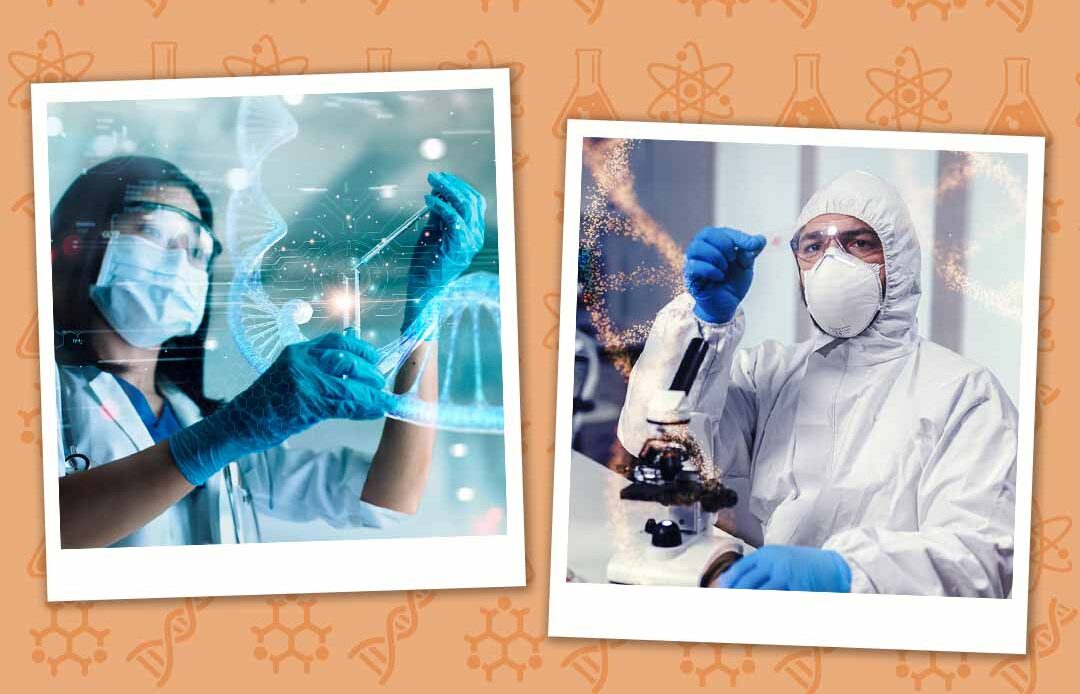Prepare for a STEM Career With WilmU’s New Biotechnology and Forensic Science Certificates

Have you ever taken a COVID-19 rapid test at home? Scientists developed it using biotechnology — along with everything from vaccines to biofuels to pest-resistant crops. You could enter this dynamic, in-demand field with Wilmington University’s new Certificate in Biotechnology. It’s part of WilmU’s expanded STEM offerings, which also include a new Certificate in Forensic Science.
“Forensic science is another one of these aggressively growing fields that have been propelled by the advancement of DNA technology,” says Dr. Milton Muldrow, director of WilmU’s natural sciences programs. “The job prospects are amazing.”
Debuting in Fall 2024, both undergraduate certificate programs will be available 100% online and in person from the College of Health Professions and Natural Sciences. No matter which format you choose, you’ll gain hands-on experience — either at WilmU Brandywine’s state-of-the-art lab facilities or at home through kits and simulations.
Excel in the Biotech Industry With a Biotechnology Certificate
The 21-credit Biotechnology certificate provides in-depth knowledge of biological principles and theory, helping you understand cell culture, immunology, genetic engineering and DNA extraction. Biotechnology has led to advances in medicine, agriculture, ecological conservation and more.
“I would describe biotechnology as taking advantage of natural biological processes and using them to collectively make our lives easier,” says Mollee Dworkin, an epidemiologist and adjunct instructor. “We’re going to have a growing need. As our population gets bigger, there are always going to be more jobs. It’s a cutting-edge field to get into.”
Learn Valuable Skills With a Forensic Science Certificate
With the 21-credit Forensic Science certificate, you will hone laboratory skills, study forensic biology and examine scientific crime scene investigation.
“Students will learn how to do the things we see in movies, such as brain dissections, using technology to explore human anatomy and other biology, DNA analysis, blood typing, studying skeletal remains, dusting for fingerprints and other crime scene investigation processes,” says Samantha Kelley, a professor and assistant science laboratory supervisor. “Students will also have the opportunity to work with Delaware INBRE, a biomedical catalyst that aims to provide students with research opportunities.”
Part of a Series of Stackable Credentials
These certificates are valuable credentials that can launch your scientific career or serve as the first step in your WilmU education. Through Dual-Credit ADVANTAGE™, you can apply credits from the Biotechnology or Forensic Science certificate to the BS in Biology as well as degree programs in Health Sciences, Applied Technology, Criminal Justice and more.
“If someone enrolls in a certificate program, it fits nicely into the bio degree, or students from other fields or degrees can also enhance their education,” Dr. Muldrow says.
Ready to join a fast-growing, sought-after STEM field? Find out how WilmU’s new Biotechnology and Forensic Science certificates can boost your career. Learn more about the Delaware Nurse Anesthesiology Program at ChristianaCare and Wilmington University and reach out to stay informed of program updates.



